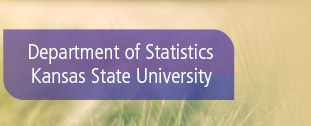Abstract
Empirical Bayes approaches have been widely used to analyze data from high throughput sequencing devices. These approaches rely on borrowing information available for all the genes across samples to get better estimates of gene level expression. To date, transcript abundance in data from next generation sequencing (NGS) technologies has been estimated using parametric approaches for analyzing count data, namely – gamma-Poisson model, negative binomial model, and over-dispersed logistic model. One serious limitation of these approaches is they cannot be applied in absence of replication. The high cost of NGS technologies imposes a serious restriction on the number of biological replicates that can be assessed. In this work, a simple non–parametric empirical Bayes modeling approach is suggested for the estimation of transcript abundances in un-replicated NGS data. The empirical Bayes analysis of NGS data follows naturally from the empirical Bayes analysis of microarray data by modifying the distributional assumption on the observations. The analysis is presented for transcript abundance estimation for two treatment groups in an un-replicated experiment, but it is easily extended for more treatment groups and replicated experiments.
Keywords
Empirical Bayes, Microarrays, Next-Generation Sequencing, Poisson distribution, Differential Gene Expression
Creative Commons License

This work is licensed under a Creative Commons Attribution-Noncommercial-No Derivative Works 4.0 License.
Recommended Citation
Srivastava, Sanvesh and Doerge, R. W.
(2010).
"A NON-PARAMETRIC EMPIRICAL BAYES APPROACH FOR ESTIMATING TRANSCRIPT ABUNDANCE IN UN-REPLICATED NEXT-GENERATION SEQUENCING DATA,"
Conference on Applied Statistics in Agriculture.
https://doi.org/10.4148/2475-7772.1069
A NON-PARAMETRIC EMPIRICAL BAYES APPROACH FOR ESTIMATING TRANSCRIPT ABUNDANCE IN UN-REPLICATED NEXT-GENERATION SEQUENCING DATA
Empirical Bayes approaches have been widely used to analyze data from high throughput sequencing devices. These approaches rely on borrowing information available for all the genes across samples to get better estimates of gene level expression. To date, transcript abundance in data from next generation sequencing (NGS) technologies has been estimated using parametric approaches for analyzing count data, namely – gamma-Poisson model, negative binomial model, and over-dispersed logistic model. One serious limitation of these approaches is they cannot be applied in absence of replication. The high cost of NGS technologies imposes a serious restriction on the number of biological replicates that can be assessed. In this work, a simple non–parametric empirical Bayes modeling approach is suggested for the estimation of transcript abundances in un-replicated NGS data. The empirical Bayes analysis of NGS data follows naturally from the empirical Bayes analysis of microarray data by modifying the distributional assumption on the observations. The analysis is presented for transcript abundance estimation for two treatment groups in an un-replicated experiment, but it is easily extended for more treatment groups and replicated experiments.

